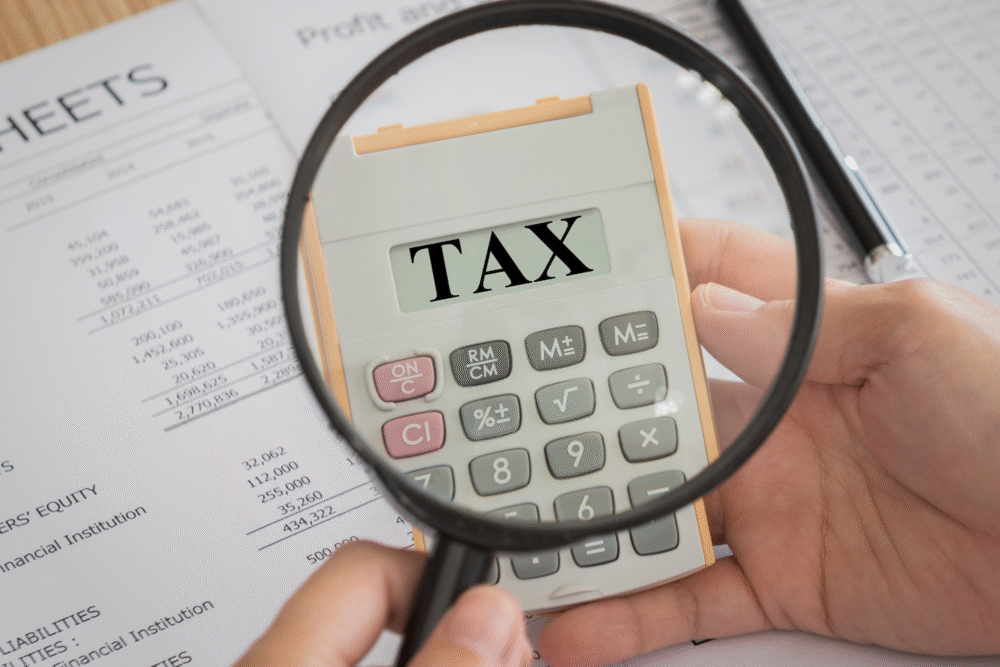Everyone claims to be centrist until it’s time to act like one.

It’s become trendy to say you’re a “fiscal conservative and social liberal.” Sounds smart, sounds balanced. But often, it’s just a way to dodge real political accountability while sounding reasonable at parties. People throw the label around without really understanding what it means—or without living in a way that reflects the values behind those words.
The truth is, if you say you’re both, there should be signs in your behavior, voting, conversations, and spending habits. And for many, those signs are missing. You might talk about low taxes and small government, but then expect federal bailouts when things go sideways. You might preach equality and tolerance, but stay silent when it matters most. Wanting the label without walking the talk doesn’t make you centrist—it just makes you inconsistent. If you’re wondering whether you actually fit the identity you claim, these signs might make you pause and reassess what you really believe in—and how much of it is based on comfort rather than conviction.
1. You want low taxes but support high-spending policies.

You say you support small government and low taxes, but you’re all in for Medicare, Social Security, national defense, better infrastructure, and education funding. You want services to work but don’t want to pay for them. That’s not fiscal conservatism—it’s wishful thinking.
Real fiscal conservatism means making tough calls about what to cut or scale back, according to the experts at Cambridge Dictionary. It means resisting bloated budgets even when they fund things you like. If you’re always complaining about taxes while backing high-cost programs, you’re not being fiscally conservative—you’re being fiscally selective. That contradiction often reveals itself in voting patterns and political conversations where people demand more for less but don’t want to admit the math doesn’t work.
2. You talk about equality but avoid uncomfortable truths.

You say you support social justice, but you flinch when conversations turn to privilege, race, or structural inequality. You claim to back marginalized communities but rarely use your voice when those same groups are under attack.
Being socially liberal means confronting hard issues—even when they make you squirm, as reported by the authorities at Britannica. It means standing up for people even when it costs you something, like popularity, comfort, or social capital. Silence isn’t neutrality—it’s complicity. So if you’re not showing up when it matters, your “social liberal” title might be more about optics than actual principles.
3. You demonize taxes but benefit from government programs.

You hate paying taxes—until you need student loans, unemployment benefits, public roads, national disaster relief, or small business grants. You use the system but still insist it’s broken or unfair. That’s not fiscal conservatism—it’s hypocrisy with a side of entitlement.
Being fiscally conservative isn’t about disliking taxes, as stated by Arwa Mahdawi at The Guardian. It’s about understanding trade-offs, choosing efficiency, and advocating for responsible use of resources. If you take without acknowledging the cost, you’re not promoting smaller government—you’re just hoping someone else picks up the tab.
4. You vote based on vibes, not values.

You claim to be independent-minded, but your votes consistently lean toward emotional appeal or party branding instead of policy. Maybe you vote for “the lesser evil,” or whoever seems more charismatic, or you avoid voting altogether because “they’re all the same.”
Real centrism demands engagement and discernment. It’s not passive. You can’t claim nuanced values and then disengage when it’s time to make hard choices. If you’re voting based on fear, mood, or memes, you’re not walking the balanced line—you’re coasting on autopilot.
5. You praise free markets but hate corporate power.

You support capitalism in theory but want to break up tech monopolies, regulate wages, and cap CEO pay. You want to limit greed but love the innovation that comes with competition. That contradiction might mean your economic views are more populist than conservative.
Fiscal conservatives typically defend market dynamics, even when the outcomes aren’t warm and fuzzy. If you don’t like where unregulated capitalism leads, you might actually support more progressive economic reforms than you’re willing to admit.
6. You avoid labels but still crave belonging.

You say you don’t like political labels, but you still want to be seen as reasonable, smart, or morally correct. You resist being lumped into a group, but your opinions consistently align with one side—or flip-flop based on who’s in power.
Claiming to be both fiscally conservative and socially liberal often functions as a shield—something to avoid arguments or complexity. But independence without reflection can just be a mask for contradiction. Belonging isn’t about fitting a mold—it’s about being honest with yourself.
7. You want affordable everything but no regulation.

You complain about rising prices, rent, healthcare, and college tuition. But you also hate regulations, unions, or any government involvement in the free market. You want the invisible hand to fix things but lose patience when it doesn’t.
If you’re not willing to accept some rules, standards, or protections, then don’t expect the market to magically solve every crisis. Real fiscal conservatives understand the limits of laissez-faire thinking. Pretending you can have affordability without accountability is just naïve.
8. You support free speech until it gets messy.

You believe in freedom of expression—until someone says something offensive, or a protest inconveniences your day, or a controversial book gets assigned at school. Then suddenly you’re on board with bans, boycotts, or firings.
Supporting free speech means tolerating disagreement, discomfort, and sometimes chaos. Social liberals don’t just protect feel-good speech—they protect the hard stuff, too. If you’re picking and choosing whose voices matter based on convenience, you’re not principled—you’re just partisan with a polite face.
9. You claim the middle but reject compromise.

You call yourself moderate or centrist, but you scoff at bipartisan efforts or criticize any politician who dares reach across the aisle. You claim moral superiority while refusing to meet people halfway.
True centrism isn’t just about positioning—it’s about process. It means listening deeply, negotiating earnestly, and tolerating some mess to get things done. If you’re unwilling to collaborate or evolve, then you’re not in the middle—you’re just hiding behind the label to avoid taking sides.
10. You expect government to “stay out”—except when it benefits you.

You want the government to mind its business, stay out of your wallet, your home, your choices. But you also expect it to step in when the economy crashes, your job gets outsourced, or your community faces disaster. You want small government—but also strong safety nets.
You can’t have both without contradiction. If your politics demand a responsive government, that costs money and oversight. If you want less intrusion, then accept less help. Fiscal conservatism means picking a lane—not riding both sides depending on what’s trending.
11. You say you’re balanced, but your outrage is one-sided.

You post about one party’s failures but ignore or excuse the same behavior in your own. You rage about Trump’s lies but gloss over Biden’s. Or you rail against liberal “mobs” while cheering on right-wing outrage. Your moral compass spins based on who’s at fault—not what’s at stake.
Being socially liberal or fiscally conservative doesn’t mean being blind to your side’s flaws. It means holding your own accountable first. If your outrage always points outward, it’s not about values—it’s about comfort. And comfort rarely leads to growth.
